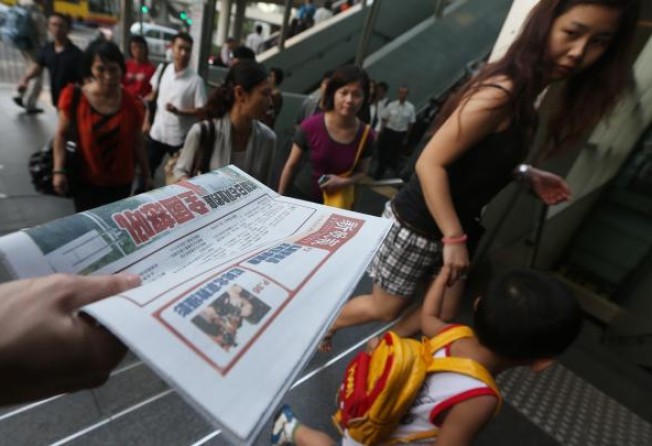
Hong Kong press freedom drops to 5-year low on global index
Drop in global ranking comes amid government moves to hide personal data of company directors and delays in granting TV licences

Hong Kong's ranking for press freedom has fallen to a five-year low of 58 among 179 places worldwide, the latest index compiled by Reporters Without Borders shows.
When the global index started in 2002, five years after China resumed sovereignty of the city from Britain, Hong Kong came 18th. Its position sank to 56th the following year.
The latest drop coincides with fears over the government's plan to hide key information of firm directors in a revision of the companies law. Local journalists see the change as detrimental to investigative journalism.

"[Chief Executive] Leung Chun-ying promised a law on freedom of information during his election," Mo said. "He has paid lip service to an archives law. It turns out he has avoided and procrastinated on both issues."
Mo said "self-censorship remains quite rampant". She also cited the government's delay in issuing free-to-air television licences and a proposed stalking law that could hinder journalists.
The city's ranking in the World Press Freedom Index 2013 released yesterday was down from 54 the year before. The non-governmental, Paris-based Reporters Without Borders promotes freedom of information.
The report did not explain the ranking. Hong Kong's lowest score, recorded in 2007, was 61.
The Financial Services and the Treasury Bureau, in response to criticism that it had made no effort to consult journalists on the proposed changes to the Companies Ordinance, said information related to the consultation was available on its website.
The bureau restated government policy that the consultation would be conducted "as wide as possible".
It is believed the bureau on Tuesday floated the idea of exempting reporters, while pressing for the change. The Journalists Association was said to have rejected the idea and insisted on keeping the status quo.
Meanwhile, mainland China was ranked sixth from the bottom, while Taiwan, at 47th, topped regions in Asia.
"China shows no sign of improving," Reporters Without Borders said. "Its prisons still hold many journalists and netizens, while increasingly unpopular internet censorship continues to be a major obstacle to access to information … Many Tibetan monks have been convicted or abducted for having sent information abroad about the disastrous state of human rights in Tibet."
Japan saw the biggest drop in Asia, down 31 places to 53, because of the government's "almost zero respect for access to information" related to Fukushima, which was devastated by an earthquake and tsunami in 2011, the report said.
Finland, the Netherlands and Norway bagged the top three spots on the list.
The rankings took into account media independence, self-censorship, legislative framework and news production transparency, among other factors.